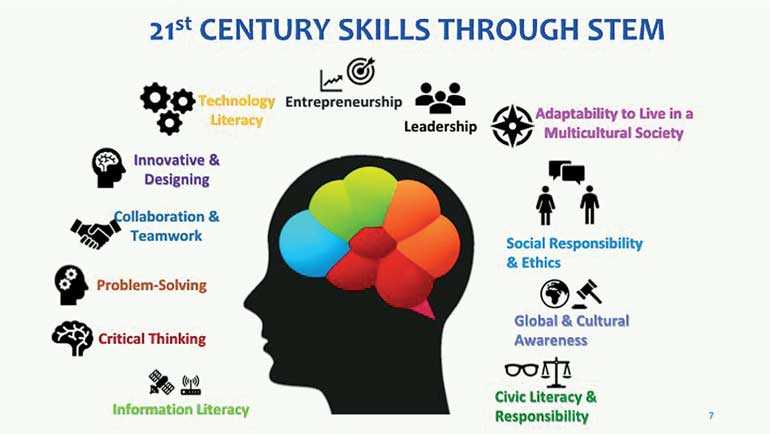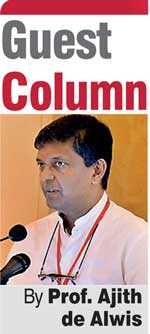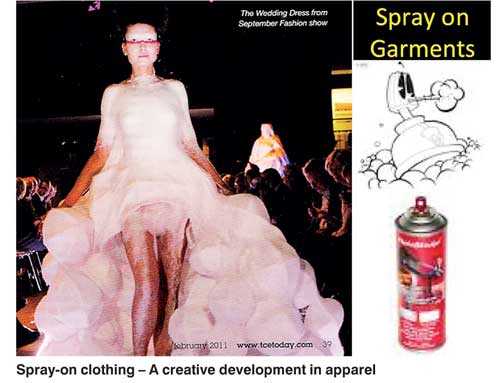Friday Feb 20, 2026
Friday Feb 20, 2026
Thursday, 20 September 2018 00:00 - - {{hitsCtrl.values.hits}}

21st century skills from STEM education
Walking into an inventors’ exhibition should give one an experience similar to an immersion into the future. The world change with inventions and inventors lead the change. The creativity displayed is an indicator of the creativity of the society from within which they emerges as lives of Da Vinci, Edison and Jobs would exemplify.
However, when one witness an invention of a clock to display the ‘Rahu’ time, the feeling one gets is that we are still stuck in astrology over astronomy or horoscopes over telescopes. The observation in a recent event in Colombo reminds me of a similar comment by a visiting scientist during Arthur C. Clarke’s time on the same. 
It was also interesting to see so many paper articles on this invention displayed by the inventor indicating the attention and the publicity that this particular invention has received. Finding time in the middle of the day and on every day too (idea of Rahu time!) that one should not work in whatever the manner is not a sign of a society that seeks progress. The creativity of the young minds needs to have the ability to channel their energies into productive endeavours.
In Myanmar it appears that one has suddenly ordered all the cars to be driven on the right side because of a statement by an astrologer. However the driver’s seating arrangement has not changed, thus plunging the country into one of the worst nations for road accidents. All because someone indicated that it is bad to do what one is doing and rulers obliged.
Late Abdul Kalam appealed to our students while he was in Sri Lanka to not seek synthetic happiness. Allowing the alignments of planetary bodies – real and imaginary – to determine what we do or not and when is indeed allowing serious cognitive decline! That this is 21st century is hard to fathom when one listen and observes many an action from some parts of the world including ours!
If science education is made more prevalent, the universal situation can change. Much of the unscientific and baseless discussions that rage over many a topic can be averted if citizens are more grounded on exact science. Science is evolving too with time but it is the method – the scientific method – that is important to have a solid understanding of.
Well there is still a group of people who believe that the world is flat, etc. in USA. Not much of an issue as they are a fringe group and no major influence on US policies come from them. Probably the believers in a flat earth play a more entertaining role in today’s society. They however are not immune to use mobile phones and the rest of modern-day paraphernalia and forget the principle of geostationary satellites and the consequent of earthly shape in bringing such services.
Sciences and Arts
Now this plea is not to emphasise Sciences only but to bring in Arts to all as well. This introduction will enhance on critical thinking. The logical left-brain activities will be nurtured with more artistic and creative right brain activities. The challenge would be to have an effective fusion when no one loses through generalisation.
Science Education, Sustainability and National Development are important aspects both from a global context and of course local! This of equal importance to us Sri Lankans as well, especially as a developing nation. Closer scrutiny reveals that a serious change in mindset is required in driving these important elements in a national context.
Our ratio of science to arts and commerce stands at 30:70. It has been indicated that 60% of the global job market in the future to be filled by STEM educated personnel, the grave situation facing the products from the current system is obvious. We need to flip this ratio on its head basically – we need 60:40 as a goal.
Value systems and ethical norms are quite important – two important areas any education system should support and build on. The significant erosion in this area due to the tuition culture is a serious situation which many of us have turned a blind eye. While the basics are getting affected it is a real challenge to take into consideration the additional elements that needs to be catered to as necessary when integrating sustainability concepts.
As time is of the essence one will have to work on quite creatively at this juncture. Quality of education is a core attribute of a society and we stand to go up or down with it! When Civics departed from our curricula it appears that Civility also disappeared. Something educational reforms should bring into at entry level perhaps.
It is important that the basics are dealt with first. Imparting the basics should not be in any way compromised. We need to introduce all fundamental sciences and open up the educational pathways for different carrier options. Separating biology and math streams would prevent organisations learning from organisms – so important in bringing in sustainable development or in introducing circular economics. We have pursued with this division far too long and it is time to drop this and develop. We cannot have arts going separate ways to science as well from an early division.
Emphasise on STEM education
There is a need to emphasise on STEM education in Sri Lanka. We do have a deficiency in science education. Of all the schools, which number around 10,194, we only find science at advanced level only in about 1,000 schools (experimental learning so vital in science is lacking even in these schools.)
I know my passage through a leading school in Colombo went through minus laboratory studies, which I compensated by having a small lab at home! That is not possible for everyone. I did it because of the great influence of the Science teacher I had in Grade 6!

This is an important point to understand – the school system is as strong as its teachers. Teacher has a unique responsibility and the status of this profession really needs an upgrade. We may not understand the vital contribution of the primary teacher and the rest of the teachers to follow as a child advances. If one thinks that a university teacher can mould any input to a productive output one is sadly mistaken. Today we observe the issue every day.
Infusion of STEM with Arts
STEAMing STEM refers to the well-accepted trend in ensuring quite a broader education and refers to the infusion of STEM with Arts. STEAM is an educational approach to learning that uses science, technology, mathematics and engineering with arts included. The hope is to enrich students learning experience by strengthening the three attributes of inquiry, dialogue and critical thinking.
STEAM considers integrating STEM subject areas to various other relevant educational disciplines. With STEAMing STEM a broader community with STEM awareness is the likely output. Society would be so much better and they will see stars as stars and not as entities that yields influence over them.
STEAMing STEM is akin to blending both science and arts education. In Russia to study Medicine the two compulsory subjects are Mathematics and Russian Language. That should be a message to some of our diehards! When you appreciate both science and arts the products can be exciting.
The spray-on-clothing is a great example of two different professions coming together due to the fact of each other appreciating what other one has to offer. The designer teamed up with an engineer to come up with a global first, which incidentally became one of the top ten nanotechnology products in 2005. For such stories to emerge from within us, we must have a strong STEM education and then place in Arts and Humanities too within. The broader initial and secondary education is a key to success subsequently.
Today our practice of staying and operating in silos indicates that we just have no idea whatsoever about another. We may sing in a Paduru party but I am doubtful whether that is the ability we are seeking with STEAM (especially when the singing is supported by alcohol). Not having had a STEAM learning I am unable to express critically but today feel the importance strongly.
We have lots of arts education but only a sprinkling of science education. We do not carry out experiments. We memorise how experiments are to be carried out. Then when faced with a practical situation we destroy equipment and efficiencies are not to be boasted about. No creative designing enters much of our activities due to lack of understanding of creative subjects.
So much is at stake due to the prevailing ignorance. Horoscope reigns supreme. It is a rare child who sought a telescope. That ilk has to grow for them as well as for us.